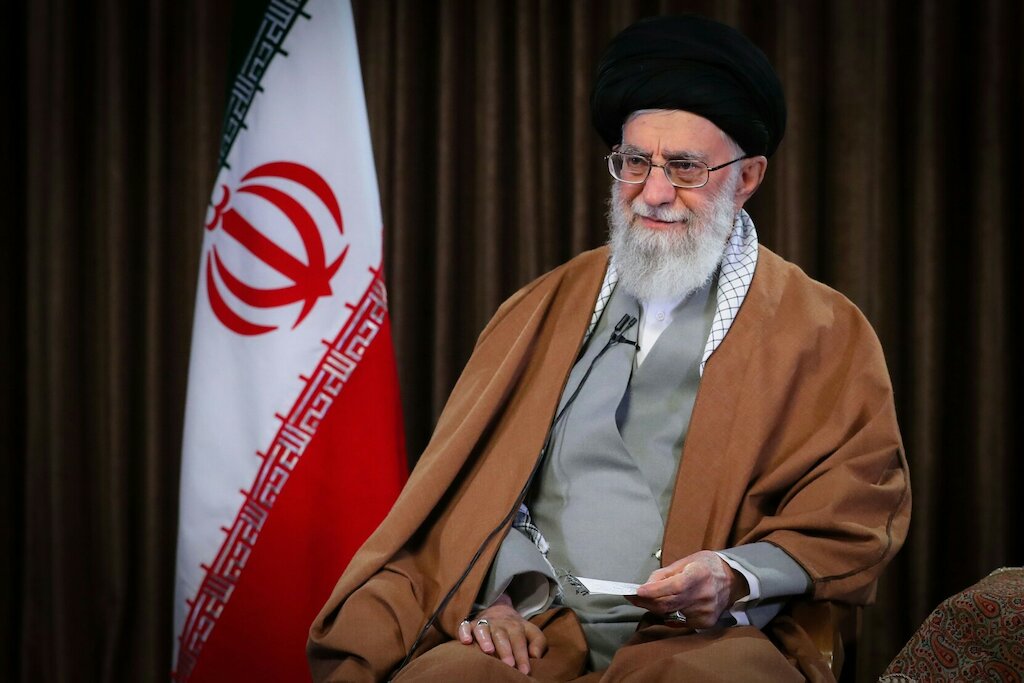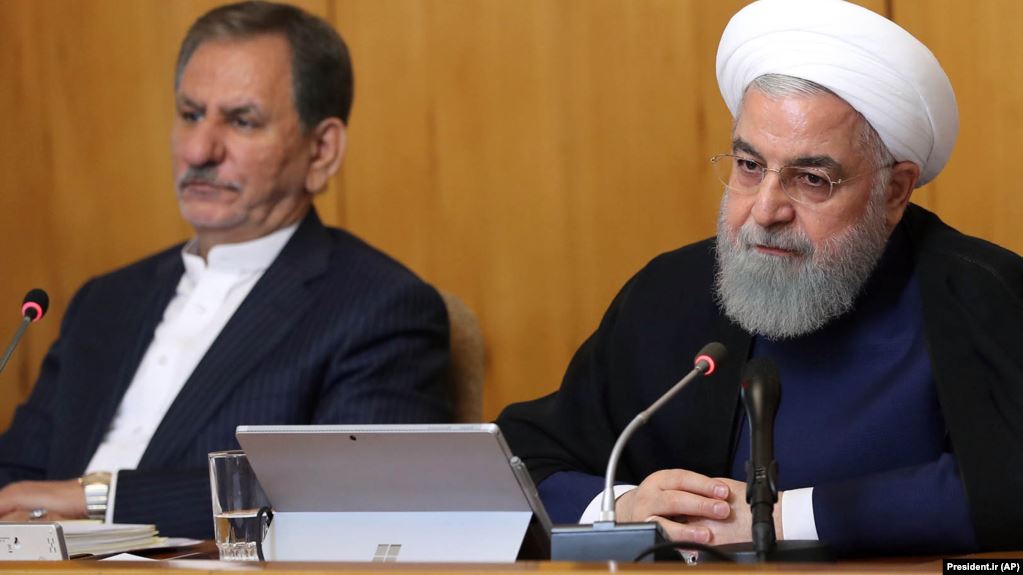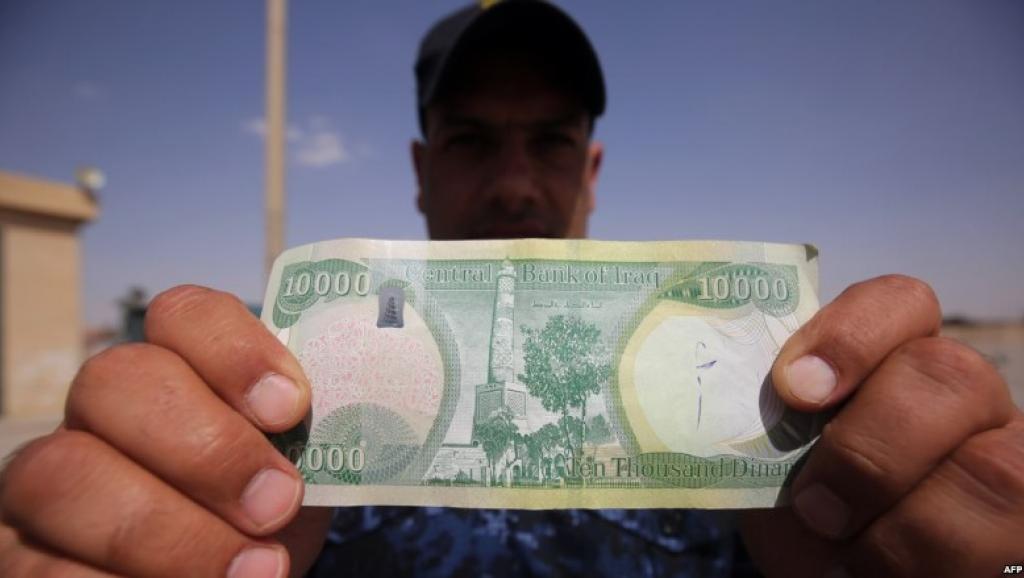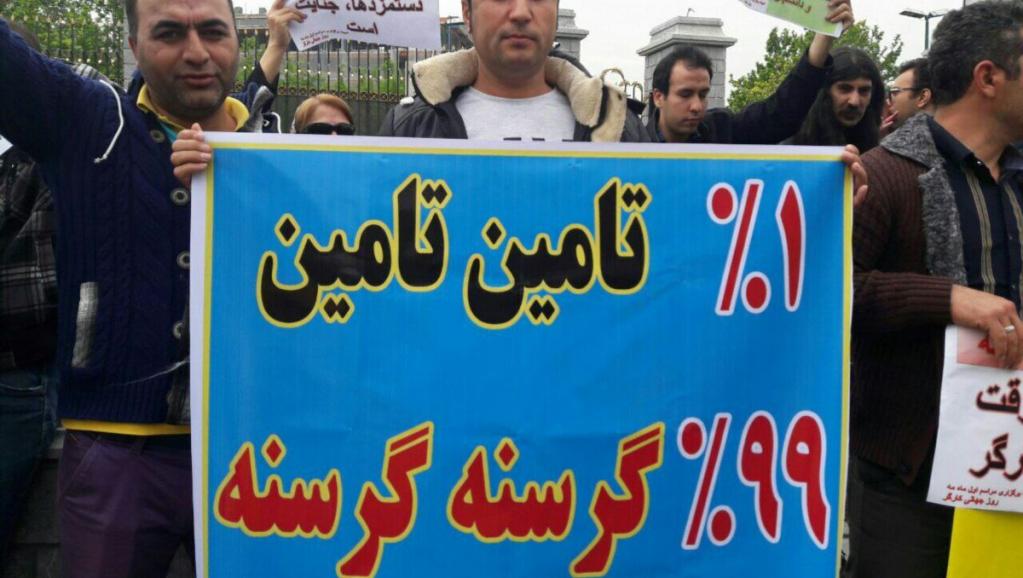
The regional message behind dissolving Hashd al Sha’abi
The editorial of Jahan Sanat explains the significance of the Iraqi government dissolving Hashd al Sha’abi and its message for Iran.
Hashd al Sha’abi is a popular Iraqi paramilitary force that fought alongside Iraq’s army against ISIS. Now that a rather stable political order has been created in post-ISIS Iraq, the Iraqi Prime Minister Adel Abul-Mahdi has issued an executive order to dissolve this paramilitary force.
The reason why this paramilitary force is to be dissolved, before anything else, goes back to the necessity of political stability and order, as well as sustainable security, in post-ISIS Iraq. Under its new leadership, Iraq needs such sustainable stability and security, particularly after the dictatorial and chaotic order by ISIS.
This Iraqi move has a message for countries in the region. It is important to note that the continuation of such a paramilitary force could create another era of disorder and anarchy in Iraq, given the conditions in the region, as well as considering geopolitical rivalries. This is mainly because of Hashd al Sha’abi’s strategic alliance with Iran.
Hashd al Sha’abi is indebted to Iran’s support for its logistics. Iran organized this paramilitary force because Hashd al Sha’abi, as part of the Axis of Resistance, was considered as an effective fighting force against ISIS and in defusing the influence of actors like America. Apart from this, Iran was hoping that via Hashd al Sha’abi, it could have a significant role in relations and equations in Iraq post-ISIS.
In other words, Hashd al Sha’abi was Tehran’s channel to influence Baghdad. As a result of this, Iraq’s new leaders have decided to dissolve this paramilitary force.
The most important message of this decision is that Iraq’s leaders are determined to stop sedition, chaos, and anarchy, and they won’t allow their country to become a battlefield for other countries and an arena for them to settle their disputes. Actually, this message is directed towards Iran.
Jahan Sanat – July 3
Opportunity to enforce the political crime law
The editorial of Etemad emphasizes the necessity of enforcing Iran’s political crime law. Iran has repeatedly denied that it has political prisoners in the country.
The spokesperson of the Judiciary recently reiterated the remarks by Iranian officials, saying that there are no political prisoners in Iran. Denying an issue doesn’t mean that it doesn’t exist. As a result of such remarks, people lose their trust in Iranian officials and the judiciary.
From what has happened in Iran, it can be gathered that currently there is no determination to enforce the country’s political crime law. Not enforcing this law – along with the judiciary not observing legal procedures such as providing a fair trial, and rights to those accused in political and security cases – will further result in people distrusting the state.
Such failings will result in more accusations being directed towards Iran, given the current circumstances of the country. The judiciary needs to enforce the political crime law in order to ensure that the rights of the accused are not violated.
What has prevented the enforcement of the political crime law – whatever the reason maybe – has been a wrong policy. If during the past years, political offenders were separated from other criminals, issues such as the murder of a 21-year old man in Fashafooyeh Prison wouldn’t have happened.
It seems that judicial officials are concerned that by enforcing the political crime law that they will face charges domestically and internationally. Now that this law is not enforced, this incrimination can strongly be made against the Iranian judicial system.
Etemad – July 2
The reasons for soaring rage in society
The editorial of Arman Emrooz deals with the issue of anger in Iranian society and that resolving this issue needs infrastructural changes.
Iran must start from reforming its political, economic, and bureaucratic system, and then move towards reforming society in order to increase tolerance and morality in society. Social issues in Iranian society have existed for a long time. Many of today’s issues have existed for a long time and haven’t been resolved.
That is why before anything else, the infrastructural issues must be resolved. Economic issues are one of the main causes of frustration and rage within people. In past years, costs and expenses have had a 40 to 60 percent increase, while wages have not increased in proportion to the growth in prices.
Apart from economic issues, other problems also make people feel frustrated and less tolerant. Think of a family in which the father is a drug addict. This problem creates difficulties for the children in that family to get married, which results in more frustration within this family.
Currently, more than one million university graduates are unemployed. Unemployment is one of the reasons for anger and frustration. Lack of meritocracy is another cause of frustration and anger. When a larger number of people in society are not in the right position, it creates anger in the work environment and society.
Many people in society enforce the law themselves, while they shouldn’t allow themselves to do so. As such, security decreases in society. Reforming society must start with improving the system. Anger and frustration must not be seen as related to superficial issues.
Iranian officials must use the views of experts to reform Iran’s economic and bureaucratic systems, but no one listens to experts.
Arman Emrooz – July 1
The necessity of changing economic policies
The editorial of Hamdeli focuses on why Iran has no place in the G20 summit.
Iran has no place in the G20, and its absence cannot necessarily be considered as a political issue. The countries that gather at the G20 summit contribute significantly to the world’s GDP. The United States, as the biggest economy in the world, contributes 24% to global GDP, and then Japan and German contribute 7% and 5% to global GDP respectively.
As for Iran’s absence at the G20, it must be said that Iran has no place among the world’s top 20 economies in the world. The fact is that Iran’s economy, according to international standards and given its low-level of economic production, cannot claim to be included among the G20. Meanwhile, the Saudi economy is consistent with international standards.
It must be admitted that the U.S. sanctions play an undeniable role in this regard, to the extent that Iran’s economy has had negative growth. Furthermore, in 2019, a negative growth of 6% has been predicted for Iran’s economy.
What is more, it must be said that Iran’s ratio of investment to GDP has reached the lowest among the Middle East and North African countries. Since this ratio plays a key role in international economic relations, Iran cannot be expected to have a role in the G20, unless it makes a change in its policies.
The economists believe that given Iran’s big market, abundant mining resources, and its energy resources, Iran can certainly reach 12% or even 14% economic growth in the short run, if it makes fundamental changes in its economic policies.
However, considering current tensions resulting from Iran’s foreign policy and the anti-production laws within the country, it seems unlikely that Iran would be among the top 20 economies in the world anytime soon.
Hamdeli – June 30

Ali Khamenei and his lose-lose game!

Wherever there is a summit in the world, the case of Iran is on the table. On the sidelines of the G20 summit in Osaka, Iran was discussed in all bilateral meetings. The U.S. President Donald Trump in his meeting with his Russian counterpart Vladimir Putin talked about Iran. He also talked about Iran with the Japanese Prime Minister Shinzo Abe, the Indian Prime Minister Modi, the French President Immanuel Macron, the German Chancellor Angela Merkel, the Saudi Crown Prince Mohammad bin Salman, and the Chinese President Xi Jinping.
Before the G20, American officials took trips to countries all over the world to discuss the issue of Iran. The U.S. Secretary of State Mike Pompeo, in his trip to the Middle East and some Asian countries, continued his efforts to create a global coalition against Iran.
The United States talks of new sanctions, targeting Ali Khamenei and his office. The Iranian Foreign Minister Mohammad Javad Zarif might also be added to the long list of Iranian officials who have been sanctioned. This can have severe repercussions for Tehran. Even though in accordance with an agreement with the United Nations, America has to issue a visa for those invited by this organization, however, the host country can refrain from issuing a visa for those considered a threat against America’s security.
Putting sanctions on Ali Khamenei and all institutions that have ties to his office is not only politically significant but they can also contribute to stopping the flow of financial aid to extremist groups in all continents. They can stop the expansion of extremists that sabotage, launch missiles, and carry out terrorist operations with the money that they receive from institutions under the control of Ali Khamenei.
Iran is facing two lose-lose options: one is war. Any war, limited or by proxy, will end in Iran’s defeat. The second one is negotiations with the United States. Even though America says it has no preconditions for starting negotiations, it will put on the table the 12 demands previously proposed by Mike Pompeo. If Iran accepts 6 of those 12 demands, it means the end of its 40-year rule by committing political suicide.
Kayhan London
Iran exceeds its stockpile limit and threatens to increase its level of uranium enrichment

By reducing its obligations in the nuclear deal, Iran is taking a big gamble.
The Iranian President Hassan Rouhani announced that from July 7 Iran will increase the level of uranium enrichment to more than 3.67%. He has also said that if the western signatories of the nuclear deal do not fulfill their obligations, Iran will return the Arak nuclear reactor to its previous condition.
Earlier, the International Atomic Energy Agency (IAEA) verified that Iran’s stockpile of enriched uranium exceeded 300kg – the limit set in the nuclear deal (JCPOA). The Iranian Foreign Minister Mohammad Javad Zarif confirmed that Iran’s stockpile passed the limit set in the JCPOA, adding that Iran sees itself entitled to do so in the deal.
The U.S. President Donald Trump called Iran’s measure to increase its stockpile of enriched uranium as “playing with fire”. The U.S. Secretary of State Mike Pompeo too had earlier tweeted in this regard, “once again, the [Iranian] regime uses its nuclear program to extort the international community and threaten regional security. The world’s top sponsor of terrorism can never be allowed to enrich uranium at any level.”
The British Foreign Minister Jeremy Hunt, in reaction to Iran’s move, expressed his deepest concern, saying that if Iran violates the JCPOA, Britain too will pull out of the deal. The French President Immanuel Macron warned Iran to reverse its decision in this regard, while the European Union too reacted negatively to Iran’s decision, reiterating Macron’s demands. The Israeli Prime Minister Benjamin Netanyahu asked the European Union to reimpose the Security Council’s sanctions against Iran.
The UN Secretary-General Antonio Guterres is also concerned about Iran breaching the nuclear deal it signed with world powers, demanding the country to keep abiding by all its nuclear commitments. The UN spokesman urged that such action by Iran won’t help in preserving the deal; nor will it secure any economic benefits for the Iranian people.
Radio Farda
RFI
Iraq to launch a financial mechanism to pay its debts to Iran

According to France news agency, the Iraqi government is creating a financial mechanism similar to that of the Europeans to circumvent the U.S. sanctions against Iran. Such a mechanism is vital for Iraq, as this country needs to import electricity from Iran and it already owes a large amount of money to Tehran.
Iraq’s electricity network is old, and one-third of this country’s electricity requirement is provided by Iran. With the U.S. administration’s agreement, Iraq has managed to create a mechanism to pay its debt of 1.7 billion euros to Iran.
An Iraqi official has said that his government will continue to buy gas from Iran, and will deposit its money to a special account in an Iraqi bank.
According to this agreement, Iran will not have access to the money in this account but it can use it to buy humanitarian goods from other countries and to pay for them from this Iraqi bank account.
It is not clear how this mechanism will work in practice, but Iraq is the second main destination for Iran’s non-oil goods, and it imports electricity and gas from Iran as well.
Three European countries – Britain, France, Germany – had earlier launched a similar mechanism called INSTEX. Recently, Federica Mogherini, the Representative of the European Union for Foreign Affairs and Security Policy, announced that seven other European countries are to join INSTEX as well. INSTEX will include non-sanctioned humanitarian items, nevertheless, Iran insists that it must cover all trade items, including oil.
Despite the fact that the Iranian Foreign Minister Zarif called INSTEX of “strategic value” to Iran, the Iranian President Hassan Rouhani said this financial mechanism means nothing and is of no use for Iran. Rouhani added that as there is no money in INSTEX, it is a useless mechanism.
RFI
Radio Farda
Physicians migrate from Iran;
Iranians face unprecedented poverty

The Deputy Health Minister Iraj Harirchi has raised alarm bells about a “serious shortage of physicians” in Iran due to the fact that an increasing number of them are migrating from the country.
Harirchi added that the ratio of doctors to patients is 1.6 per 1000 people in Iran while it should at least be 2.5 per 1000 people. This includes general practitioners, specialists, and dentists.
Iran’s Deputy Health Minister then pointed out that 15,000 physicians no longer practice, meaning that they have either migrated from the country or are no longer active. Harirchi had also previously warned about people no longer going to the doctor surgery in order to reduce their expenses.
In the meantime, ILNA, the Iranian workers’ news agency, has reported that the subsistence basket (minimum subsistence level of goods and services) of employed and retired workers is now facing a larger than 4 million tomans deficit in comparison with March.
According to ILNA, the wages and benefits of a worker with one child reach 2.2 million tomans per month, while his subsistence basket is 6.48 million tomans. As such, each worker has a 4.28 million tomans deficit each month. Retired workers have a larger deficit, particularly those who because of old age must pay for treatment and medical expenses.
Earlier, independent worker unions such as the Free Union of Iranian Workers, the Tehran Bus Drivers Union, and the Workers’ Union of Haft Tapeh Sugarcane Company had demanded that the minimum wage be set at 7 million tomans.
According to ILNA, the Iranian Parliament’s Research Center has predicted that the poverty rate will further increase this year.
ISNA
RFI
